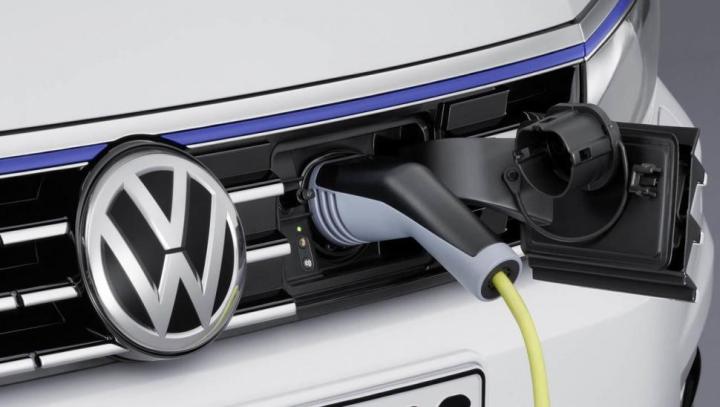
You’ll undoubtedly see more EVs and hybrids on the road in the coming years, but with charging stations few and far between these days, our infrastructure will have to adjust to meet the ever-shifting landscape.
California looks to be the first state to embrace that change.
The Long Tail Pipe reports that The Golden State will amend its building code sometime between 2015 and 2016, one of the main changes being the requirement of basic EV and hybrid charging station infrastructure to be in place on some new construction.
According to the update, new housing and parking lot construction must have, at the minimum, “the conduit and electrical system calculations required to prepare for charging stations.”
The purpose of such a change is sway potential buyers toward hybrids EVs like the Volkswagen Passat GTE, with the knowledge that installing a dedicated charging system won’t be as big of a hassle (or a kick to the wallet) as it has been in the past.
Dedicated chargers are much more powerful and stable than a standard 120-volt home outlet, which will cut down on ‘refueling’ times and pesky circuit overloads.
Related: Formula E’s all-electric racecars are shaping the future of tomorrow’s EVs
In this case, the small amount of pre-project foresight will be worth its weight in gold. State Department officials estimate that the conduits and other materials needed to make an ‘EV capable’ unit will cost around $50, which is chump change compared to the massive installation costs of independent, full-blown chargers.
In an electrical vehicle readiness study done by the Department of Housing and Community Development, officials projected that California will need over 1 million charging stations by 2025.
Here’s to taking the first step.
(Photo via Volkswagen)
Editors' Recommendations
- Charging your EV is about to get easier, as carmakers team up to build 30,000 chargers
- Mercedes EV charging hubs are coming to North America by the end of the decade
- Why do EVs charge slowly? Lithium battery limits explained
- Volta is building a free electric car fast-charging network. No, really
- Electrify America’s home station lets you charge your EV while watching Netflix


